Financial System Adaptability and Resilience
This research group investigates critical aspects of financial system adaptability and resilience. First, it analyses the impact of natural disasters on financial systems. Second, the group aims to investigate the effects of political preferences for the green transition. Third, the group's research analyses the role of culture in economies.
Research Cluster
Financial Resilience and RegulationYour contact

Mitglied - Department Financial Markets
EXTERNAL FUNDING
07.2016 ‐ 12.2018
Relationship Lenders and Unorthodox Monetary Policy: Investment, Employment, and Resource Reallocation Effects
Leibniz Association
We combine a number of unique and proprietary data sources to measure the impact of relationship lenders and unconventional monetary policy during and after the European sovereign debt crisis on the real economy. Establishing systematic links between different research data centers (Forschungsdatenzentren, FDZ) and central banks with detailed micro-level information on both financial and real activity is the stand-alone proposition of our proposal. The main objective is to permit the identification of causal effects, or their absence, regarding which policies were conducive to mitigate financial shocks and stimulate real economic activities, such as employment, investment, or the closure of plants.
01.2015 ‐ 12.2019
Interactions between Bank-specific Risk and Macroeconomic Performance
German Research Foundation (DFG)
Refereed Publications
Credit Allocation and Value Creation of Banks: The Impact of Relationship Banking in Normal and Crisis-times
in: Revue d'économie financière, No. 106, 2012
Abstract
In this paper we review the literature on credit allocation and value creation of banks. We focus on relationship banking that occurs when a bank and a borrower engage into multiple interactions and when both parties invest in obtaining some counterparty specific information. We summarize how relationship banking generates costs and benefits for both firms and banks, but argue that on average it generates value for both of them. The impact however hinges substantially on whether we are in normal times versus crisis times. We further discuss how credit allocation as measured by industry specialization impacts firms and banks. At last we review the recent literature on securitization and relationship banking to study how securitization impacts the effects of relationship banking.
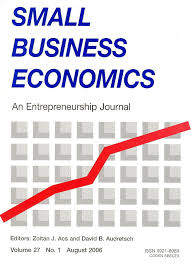
The Impact of Firm and Industry Characteristics on Small Firms’ Capital Structure
in: Small Business Economics, No. 4, 2012
Abstract
We study the impact of firm and industry characteristics on small firms’ capital structure, employing a proprietary database containing financial statements of Dutch small and medium-sized enterprises (SMEs) from 2003 to 2005. The firm characteristics suggest that the capital structure decision is consistent with the pecking-order theory: Dutch SMEs use profits to reduce their debt level, and growing firms increase their debt position since they need more funds. We further document that profits reduce in particular short-term debt, whereas growth increases long-term debt. We also find that inter- and intra-industry effects are important in explaining small firms’ capital structure. Industries exhibit different average debt levels, which is in line with the trade-off theory. Furthermore, there is substantial intra-industry heterogeneity, showing that the degree of industry competition, the degree of agency conflicts, and the heterogeneity in employed technology are also important drivers of capital structure.
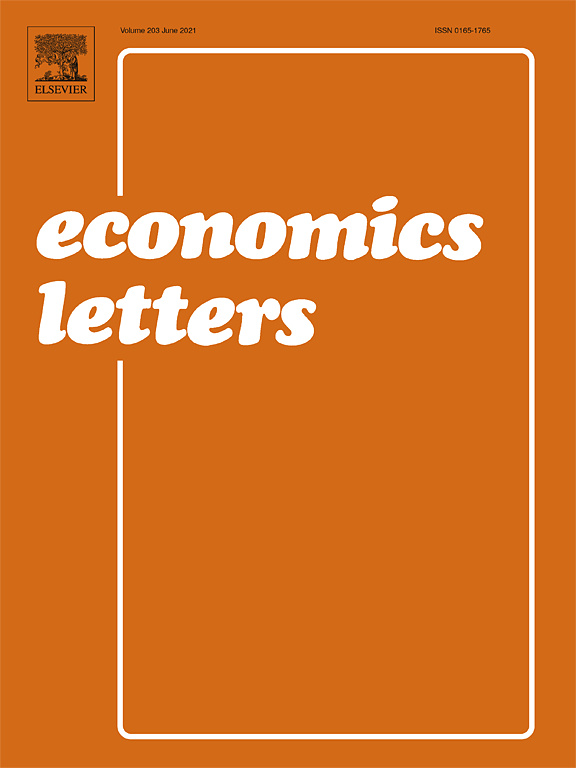
Enhancing Market Power by Reducing Switching Costs
in: Economics Letters, No. 3, 2012
Abstract
A proportional decrease in switching costs increases competition and social welfare. However, a lump-sum decrease in switching costs softens competition and does not invariably increase social welfare.
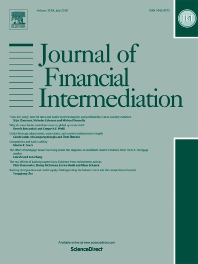
Rules versus Discretion in Loan Rate Setting
in: Journal of Financial Intermediation, No. 4, 2011
Abstract
Loan rates for seemingly identical borrowers often exhibit substantial dispersion. This paper investigates the determinants of the dispersion in interest rates on loans granted by banks to small and medium sized enterprises. We associate this dispersion with the loan officers’ use of “discretion” in the loan rate setting process. We find that “discretion” is most important if: (i) loans are small and unsecured; (ii) firms are small and opaque; (iii) the firm operates in a large and highly concentrated banking market; and (iv) the firm is distantly located from the lender. Consistent with the proliferation of information-technologies in the banking industry, we find a decreasing role for “discretion” over time in the provision of small credits to opaque firms. While widely used in the pricing of loans, “discretion” plays only a minor role in the decisions to grant loans.
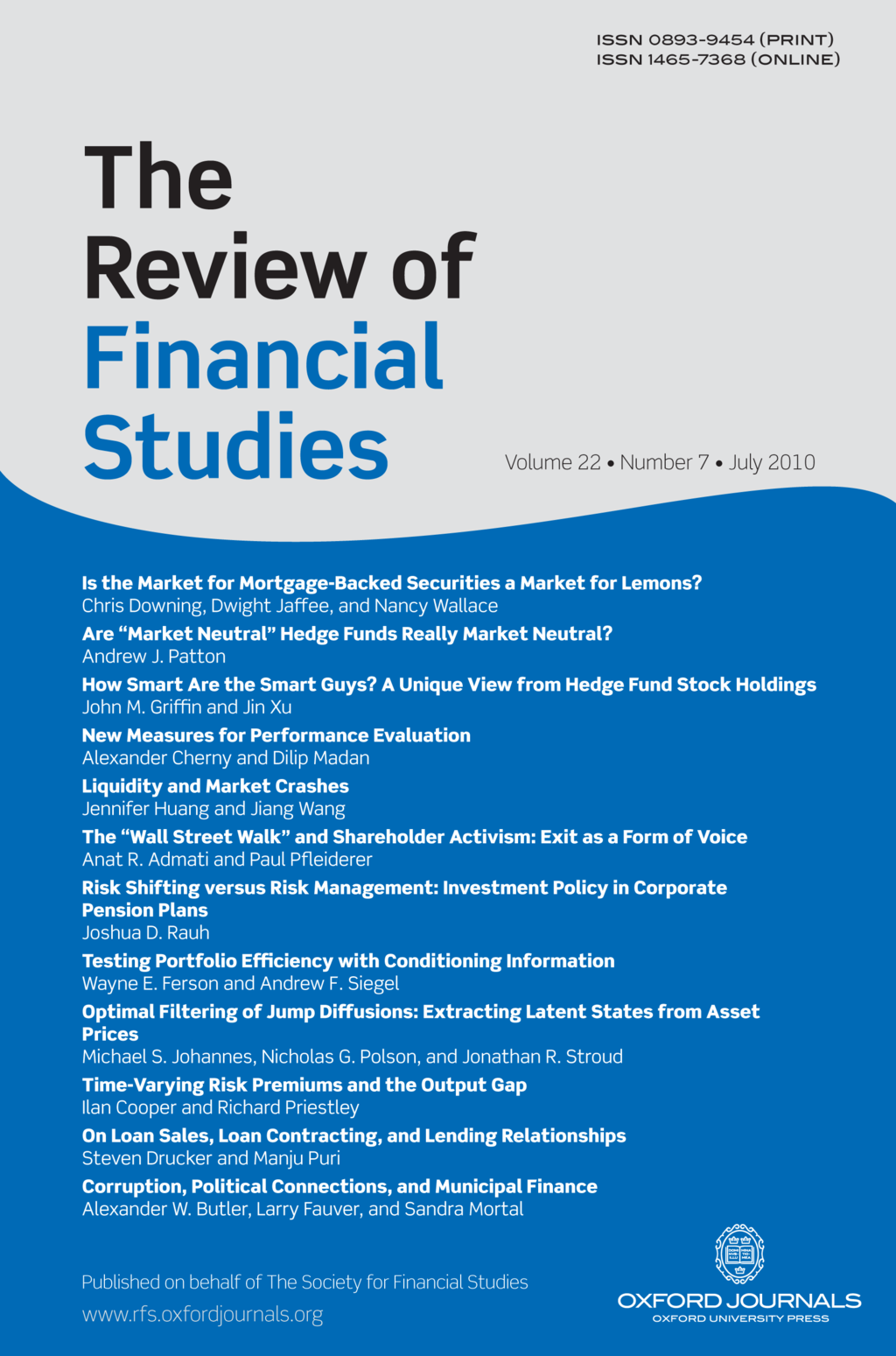
Staying, Dropping, or Switching: The Impacts of Bank Mergers on Small Firms
in: Review of Financial Studies, No. 4, 2011
Abstract
Assessing the impacts of bank mergers on small firms requires separating borrowers with single versus multiple banking relationships and distinguishing the three alternatives of “staying,” “dropping,” and “switching” of relationships. Single-relationship borrowers who “switch” to another bank following a merger will be less harmed than those whose relationship is “dropped” and not replaced. Using Belgian data, we find that single-relationship borrowers of target banks are more likely than other borrowers to be dropped. We track postmerger performance and show that many dropped target-bank borrowers are harmed by the merger. Multiple-relationship borrowers are less harmed, as they can better hedge against relationship discontinuations.
Working Papers
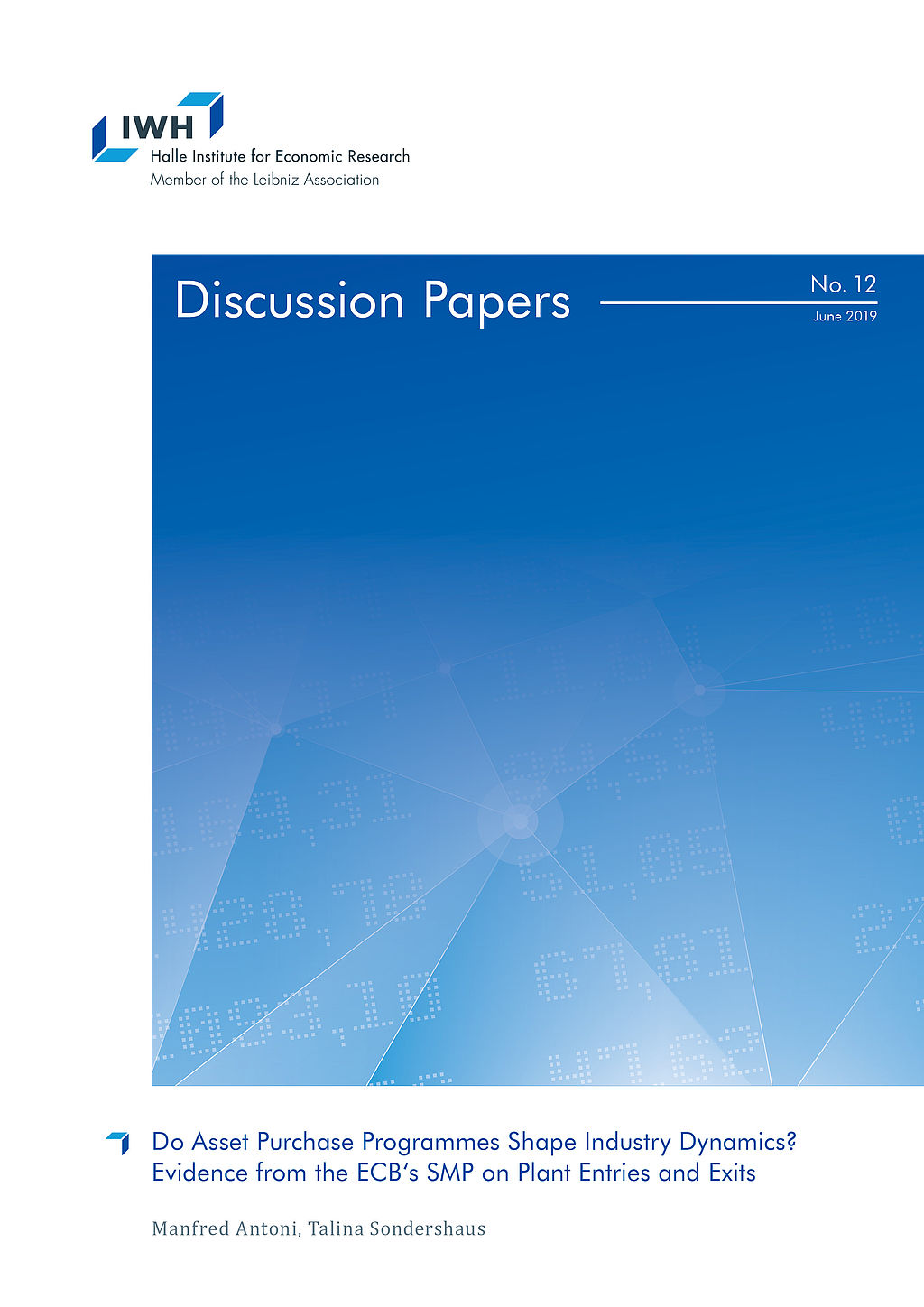
Do Asset Purchase Programmes Shape Industry Dynamics? Evidence from the ECB's SMP on Plant Entries and Exits
in: IWH Discussion Papers, No. 12, 2019
Abstract
Asset purchase programmes (APPs) may insulate banks from having to terminate relationships with unproductive customers. Using administrative plant and bank data, we test whether APPs impinge on industry dynamics in terms of plant entry and exit. Plants in Germany connected to banks with access to an APP are approximately 20% less likely to exit. In particular, unproductive plants connected to weak banks with APP access are less likely to close. Aggregate entry and exit rates in regional markets with high APP exposures are also lower. Thus, APPs seem to subdue Schumpeterian cleansing mechanisms, which may hamper factor reallocation and aggregate productivity growth.
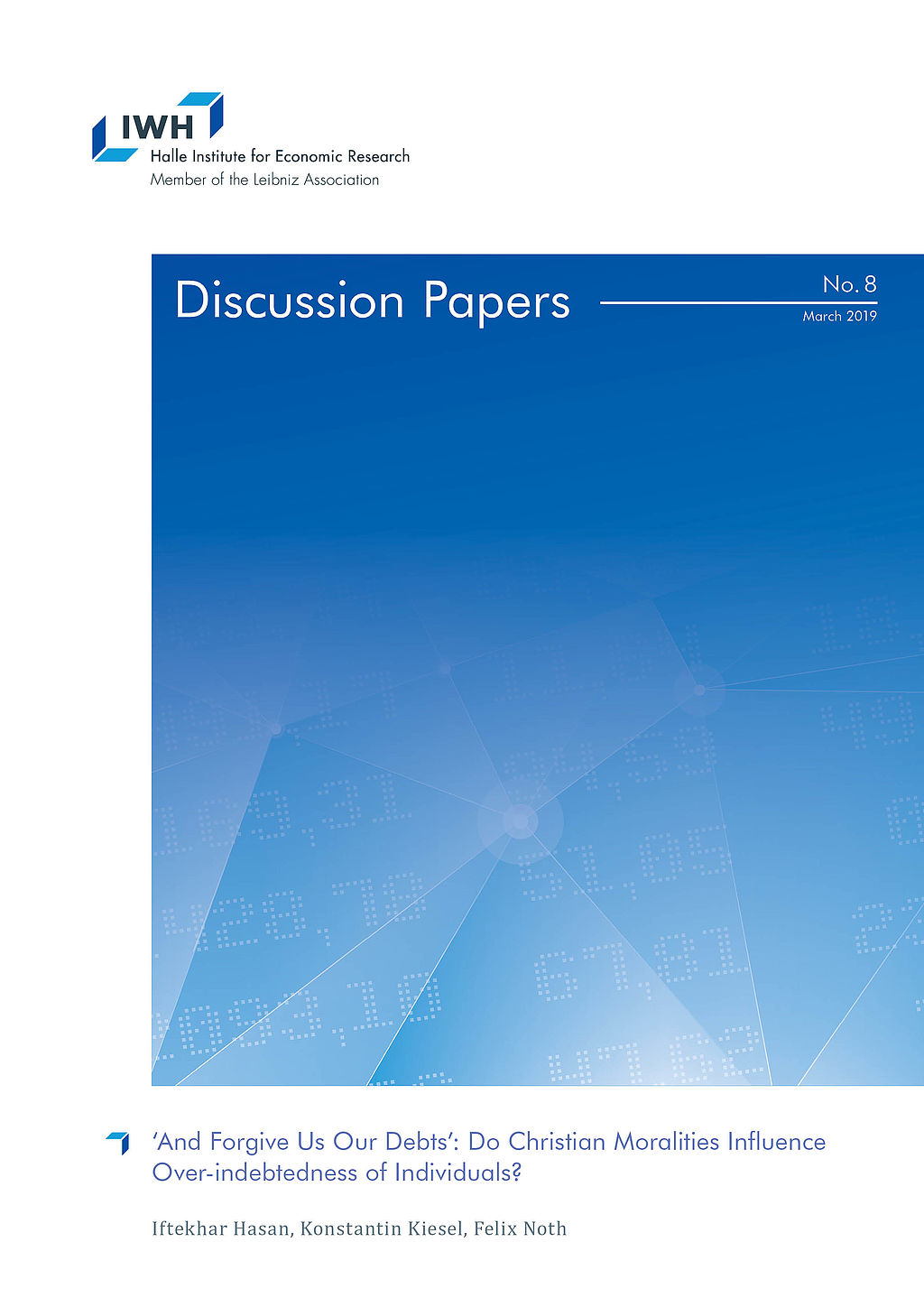
‘And Forgive Us Our Debts’: Do Christian Moralities Influence Over-indebtedness of Individuals?
in: IWH Discussion Papers, No. 8, 2019
Abstract
This paper analyses whether Christian moralities and rules formed differently by Catholics and Protestants impact the likelihood of households to become overindebted. We find that over-indebtedness is lower in regions in which Catholics outweigh Protestants, indicating that Catholics‘ forgiveness culture and a stricter enforcement of rules by Protestants serve as explanations for our results. Our results provide evidence that religion affects the financial situations of individuals and show that even 500 years after the split between Catholics and Protestants, the differences in the mind-sets of both denominations play an important role for situations of severe financial conditions.
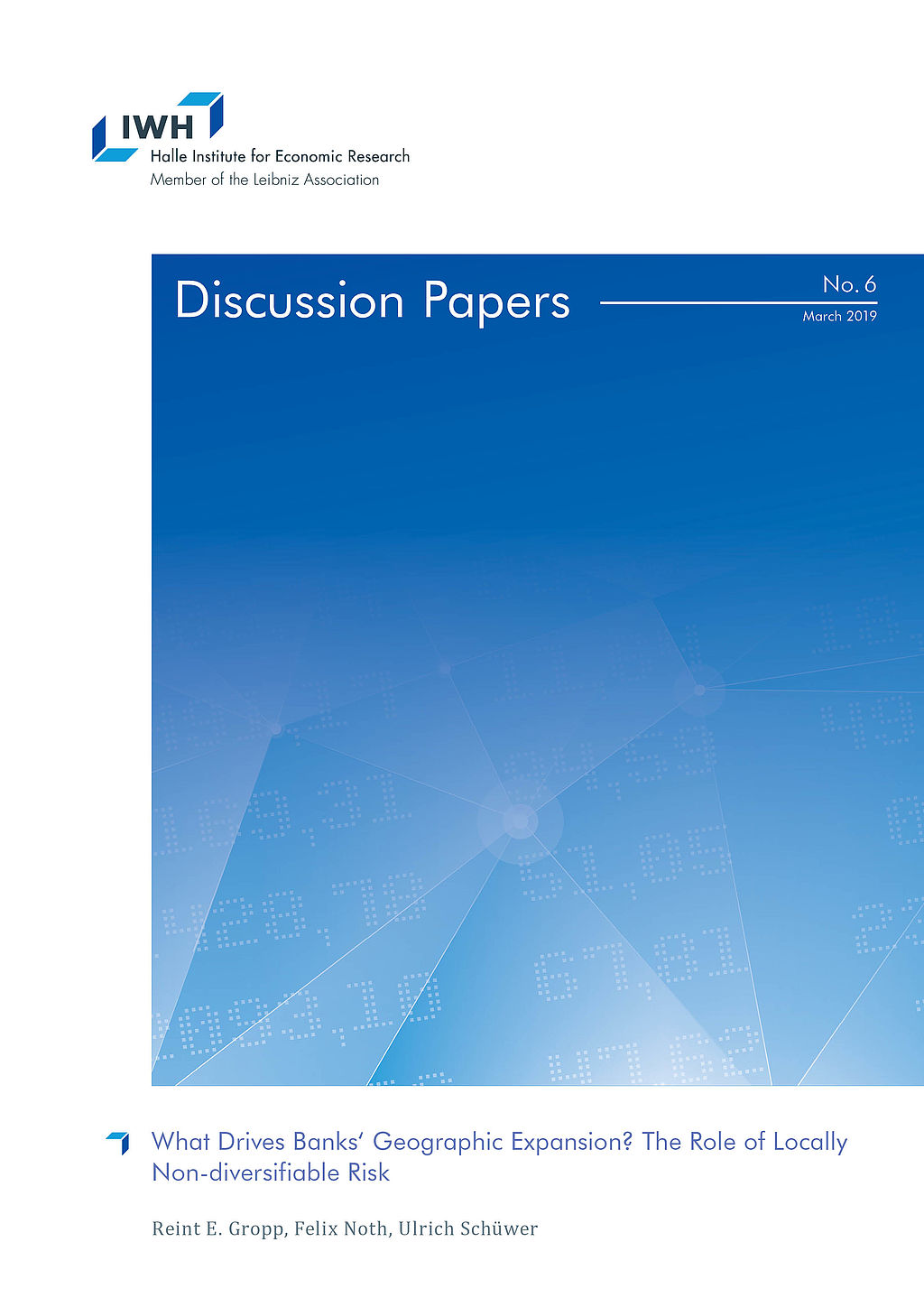
What Drives Banks‘ Geographic Expansion? The Role of Locally Non-diversifiable Risk
in: IWH Discussion Papers, No. 6, 2019
Abstract
We show that banks that are facing relatively high locally non-diversifiable risks in their home region expand more across states than banks that do not face such risks following branching deregulation in the 1990s and 2000s. These banks with high locally non-diversifiable risks also benefit relatively more from deregulation in terms of higher bank stability. Further, these banks expand more into counties where risks are relatively high and positively correlated with risks in their home region, suggesting that they do not only diversify but also build on their expertise in local risks when they expand into new regions.
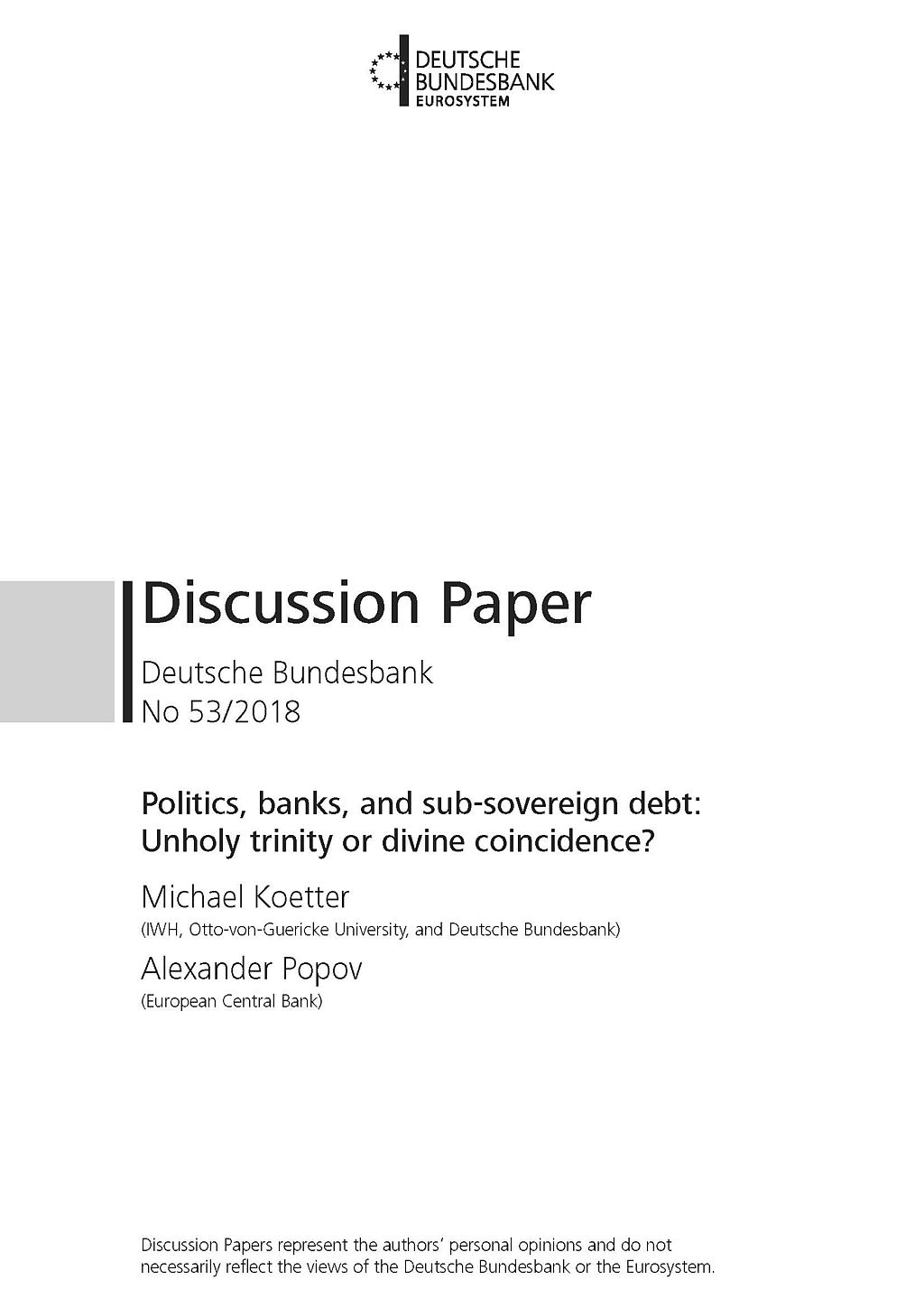
Politics, Banks, and Sub-sovereign Debt: Unholy Trinity or Divine Coincidence?
in: Deutsche Bundesbank Discussion Paper, No. 53, 2018
Abstract
We exploit election-driven turnover in State and local governments in Germany to study how banks adjust their securities portfolios in response to the loss of political connections. We find that local savings banks, which are owned by their host county and supervised by local politicians, increase significantly their holdings of home-State sovereign bonds when the local government and the State government are dominated by different political parties. Banks' holdings of other securities, like federal bonds, bonds issued by other States, or stocks, are not affected by election outcomes. We argue that banks use sub-sovereign bond purchases to gain access to politically distant government authorities.

May the Force Be with You: Exit Barriers, Governance Shocks, and Profitability Sclerosis in Banking
in: Deutsche Bundesbank Discussion Paper, No. 49, 2018
Abstract
We test whether limited market discipline imposes exit barriers and poor profitability in banking. We exploit an exogenous shock to the governance of government-owned banks: the unification of counties. County mergers lead to enforced government-owned bank mergers. We compare forced to voluntary bank exits and show that the former cause better bank profitability and efficiency at the expense of riskier financial profiles. Regarding real effects, firms exposed to forced bank mergers borrow more at lower cost, increase investment, and exhibit higher employment. Thus, reduced exit frictions in banking seem to unleash the economic potential of both banks and firms.


















